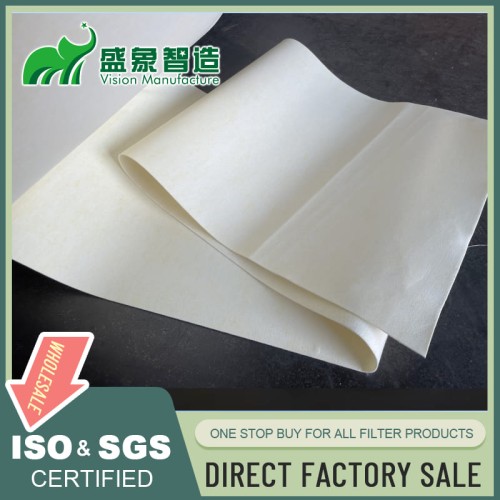
PP Cotton Filters Unravel the Power of Polypropylene in Industrial Filtration
I. Introduction
In the vast landscape of industrial processes, the significance of efficient filtration cannot be overstated. PP cotton filters, made from polypropylene fibers, are increasingly becoming the go-to choice for industries seeking reliable and effective filtration solutions. This introduction explores the rising popularity of PP cotton filters and their critical role in maintaining operational efficiency and protecting equipment in various industrial setups.
II. Understanding PP Cotton Filters
PP cotton filters are crafted from polypropylene, a versatile polymer that lends itself well to the demands of filtration. These filters are known for their robust structure and exceptional particle retention capabilities. The key properties of polypropylene—such as chemical resistance, low moisture absorption, and high dirt-holding capacity—make PP cotton filters highly suitable for a wide range of industrial applications.
III. Manufacturing Process of PP Cotton Filters
The production of PP cotton filters involves several critical steps:
- Raw Material Preparation: High-quality polypropylene fibers are prepared for processing.
- Melt-blown Technology: Fibers are melted and blown into a fine mesh, ideal for capturing minute particles.
- Needle-punching Process: This technique enhances the mechanical strength of the filter fabric.
- Finishing and Quality Control: Each filter is finished to meet specific industry standards and undergoes rigorous testing.
Vision Filter employs advanced manufacturing techniques to ensure each PP cotton filter meets the highest standards of quality and performance.
IV. Types of PP Cotton Filters
PP cotton filters come in various forms to suit different industrial needs:
- Rolled PP Cotton Filters: Used in applications requiring continuous filtration.
- PP Cotton Filter Pads: Ideal for customizable filtration setups.
- PP Cotton Filter Cartridges: Commonly used in water and air purification systems.
- PP Cotton Filter Bags: Suitable for high-volume filtration needs.
Vision Filter also offers customized solutions, tailoring filters to meet specific operational requirements.
V. Applications of PP Cotton Filters
PP cotton filters are versatile and can be used in numerous filtration applications:
- Water Filtration: Including industrial water treatment and swimming pool systems.
- Air Filtration: Used in HVAC systems and automotive air filters.
- Oil and Fuel Filtration: Essential in automotive and other machinery-related industries.
- Food and Beverage Industry: Ensuring purity and compliance with health standards.
- Pharmaceutical and Medical Applications: For sterile processing environments.
VI. Advantages of PP Cotton Filters
The benefits of using PP cotton filters in industrial filtration include:
- High Dirt-Holding Capacity: Allows for extended operation periods without frequent changes.
- Chemical Resistance: Makes them suitable for harsh chemical environments.
- Low Water Absorption: Ensures efficiency in humid conditions.
- Durability and Long Service Life: Reduces the need for frequent replacements, offering cost savings.
- Cost-Effectiveness: Provides a high return on investment due to durability and efficiency.
VII. Choosing the Right PP Cotton Filter
Selecting the right PP cotton filter involves considering several factors:
- Micron Rating and Flow Rate: To match the specific particle size and volume requirements.
- Compatibility: Ensuring the filter material is compatible with the substances being filtered.
- Quality: Opting for high-quality filters like those from Vision Filter guarantees better performance and reliability.
VIII. Comparison with Other Filter Media
PP cotton filters often provide a more advantageous solution compared to traditional cotton, polyester, or fiberglass filters due to their superior durability, efficiency, and cost-effectiveness. They are particularly beneficial in applications where moisture resistance and chemical compatibility are required.
IX. Maintenance and Replacement of PP Cotton Filters
Maintaining PP cotton filters involves regular cleaning, monitoring for wear and tear, and timely replacement to ensure optimal performance. Best practices include routine inspections and adherence to the manufacturer's guidelines for maintenance and replacement.
X. Innovations in PP Cotton Filter Technology
Vision Filter is at the forefront of innovations in PP cotton filter technology, incorporating advanced fiber materials and nano-fiber enhancements to improve filtration efficiency. Antimicrobial treatments and other functional enhancements are also being developed to meet the evolving needs of industries.
XI. Environmental and Sustainability Aspects
PP cotton filters are designed with sustainability in mind. They are often recyclable and feature energy-efficient production processes. Vision Filter's commitment to sustainable practices is evident in their use of environmentally friendly materials and methods.
XII. Case Studies: PP Cotton Filters in Action
Real-world applications of PP cotton filters demonstrate their effectiveness in enhancing filtration efficiency across various industries. Case studies highlight how these filters have solved complex filtration challenges, providing tangible benefits to businesses.
XIII. Future Trends in PP Cotton Filtration
The future of PP cotton filtration looks promising, with potential advancements in smart filter technologies and materials that respond to environmental stimuli. These innovations are expected to further enhance the efficiency and adaptability of PP cotton filters.
XIV. Conclusion
PP cotton filters are proving to be invaluable in the realm of industrial filtration, offering a blend of efficiency, durability, and cost-effectiveness. As industries continue to evolve, the role of advanced filtration solutions like those provided by Vision Filter will become increasingly crucial. For those looking to optimize their filtration systems, engaging with Vision Filter's expertise is an excellent step toward achieving superior operational outcomes.
Leave a comment

